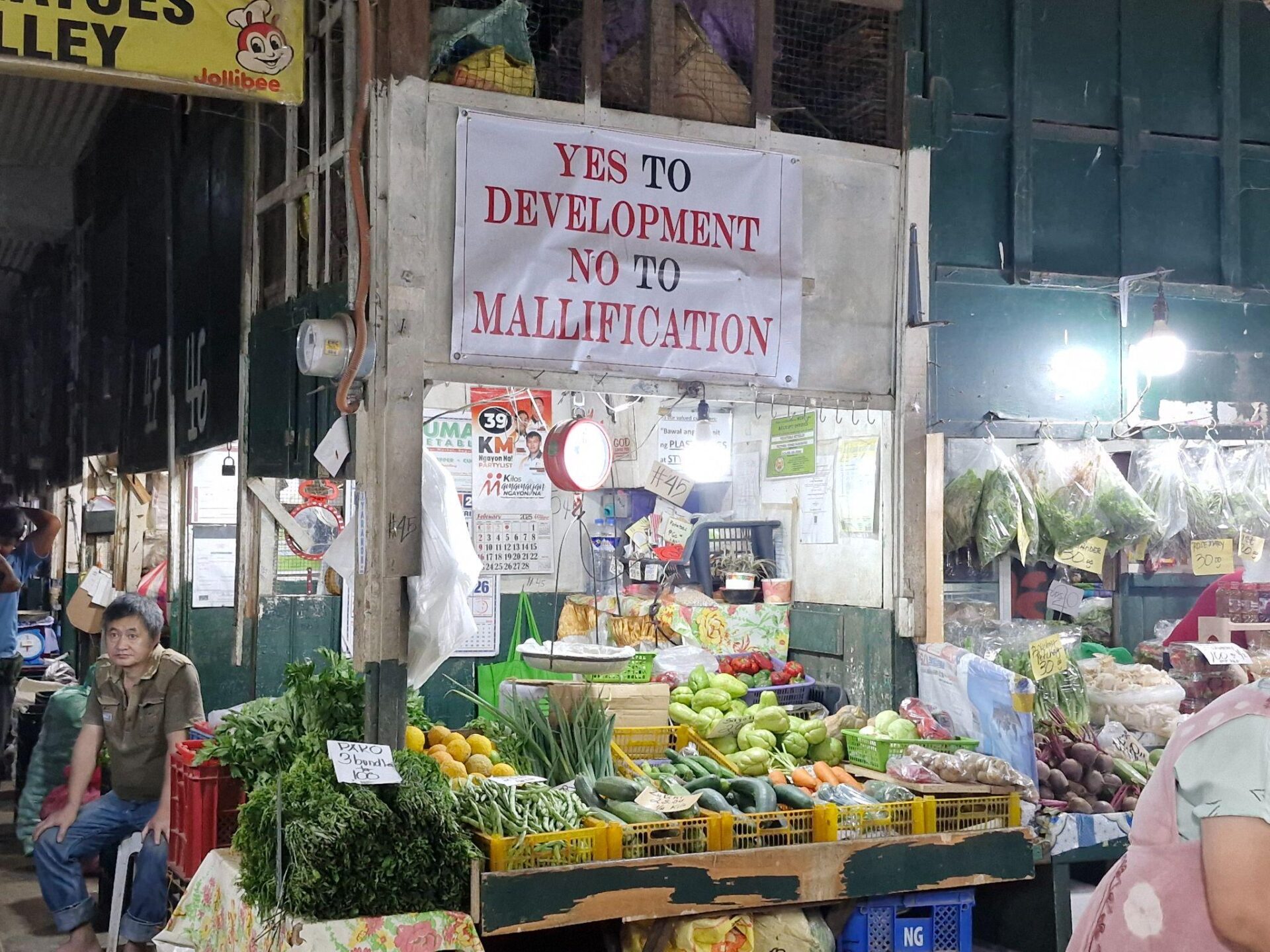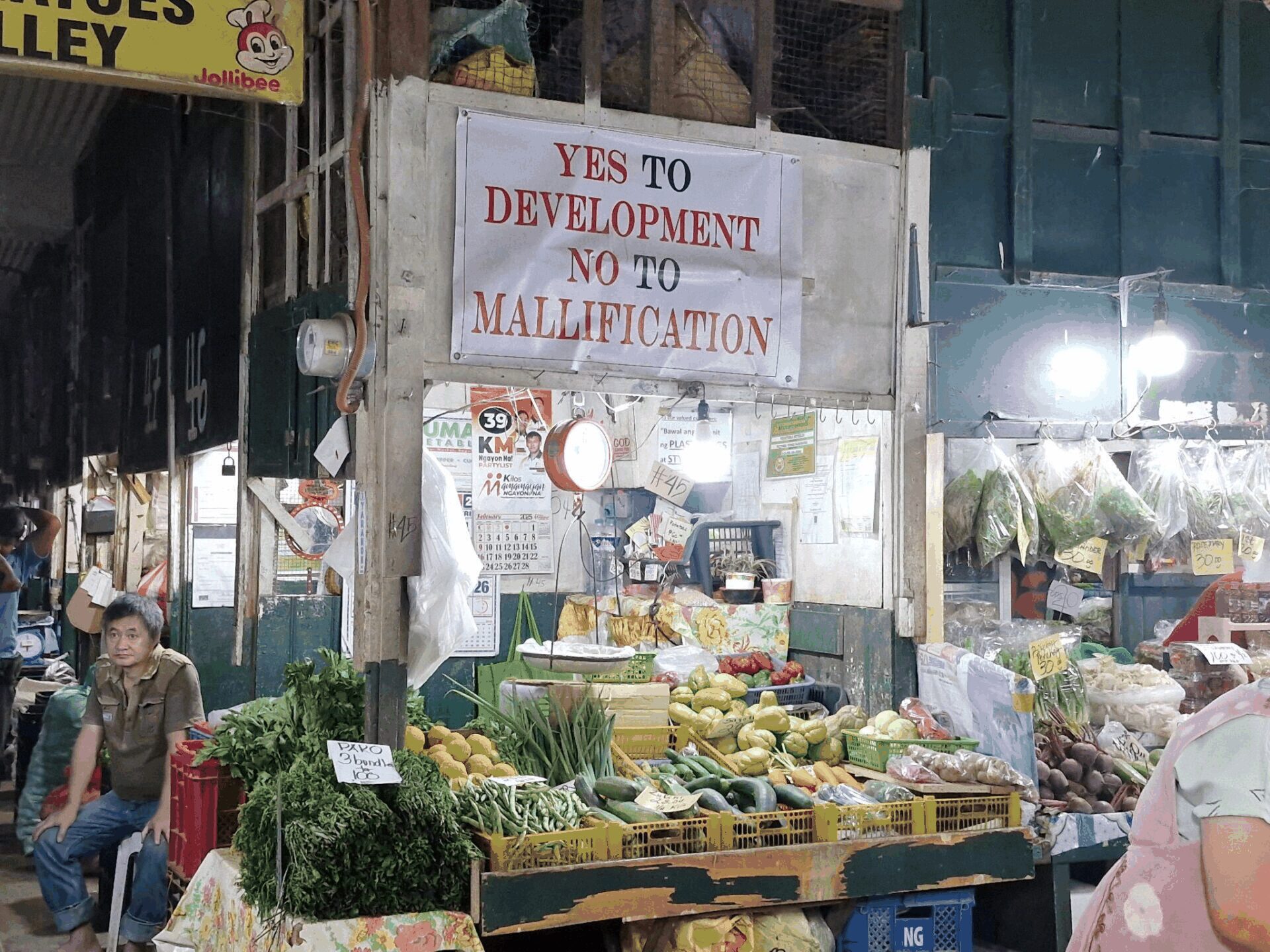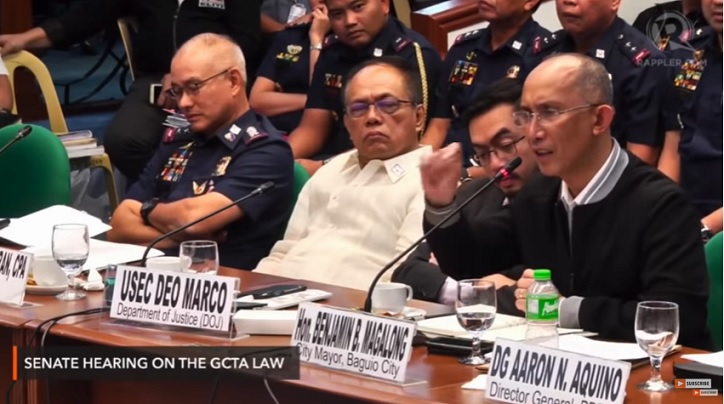The festering controversy over the redevelopment of the century-old Baguio City public market has become a hot issue in the May elections that could cost Mayor Benjamin Magalong the seat he has secured for the last six years.
The project was part of the mayor’s 10-point agenda when he first ran for the post in 2019 after retiring as deputy director general of the national police. A year later and after several public consultations, the city council approved the master development plan for this major undertaking drafted by a technical working group.
When major mall developers came into the picture soon after, it prompted the people of Baguio to air their concerns. And now that Magalong’s electoral opponents have picked up the controversy, what the mayor hoped would be his legacy is under threat – along with his political future.
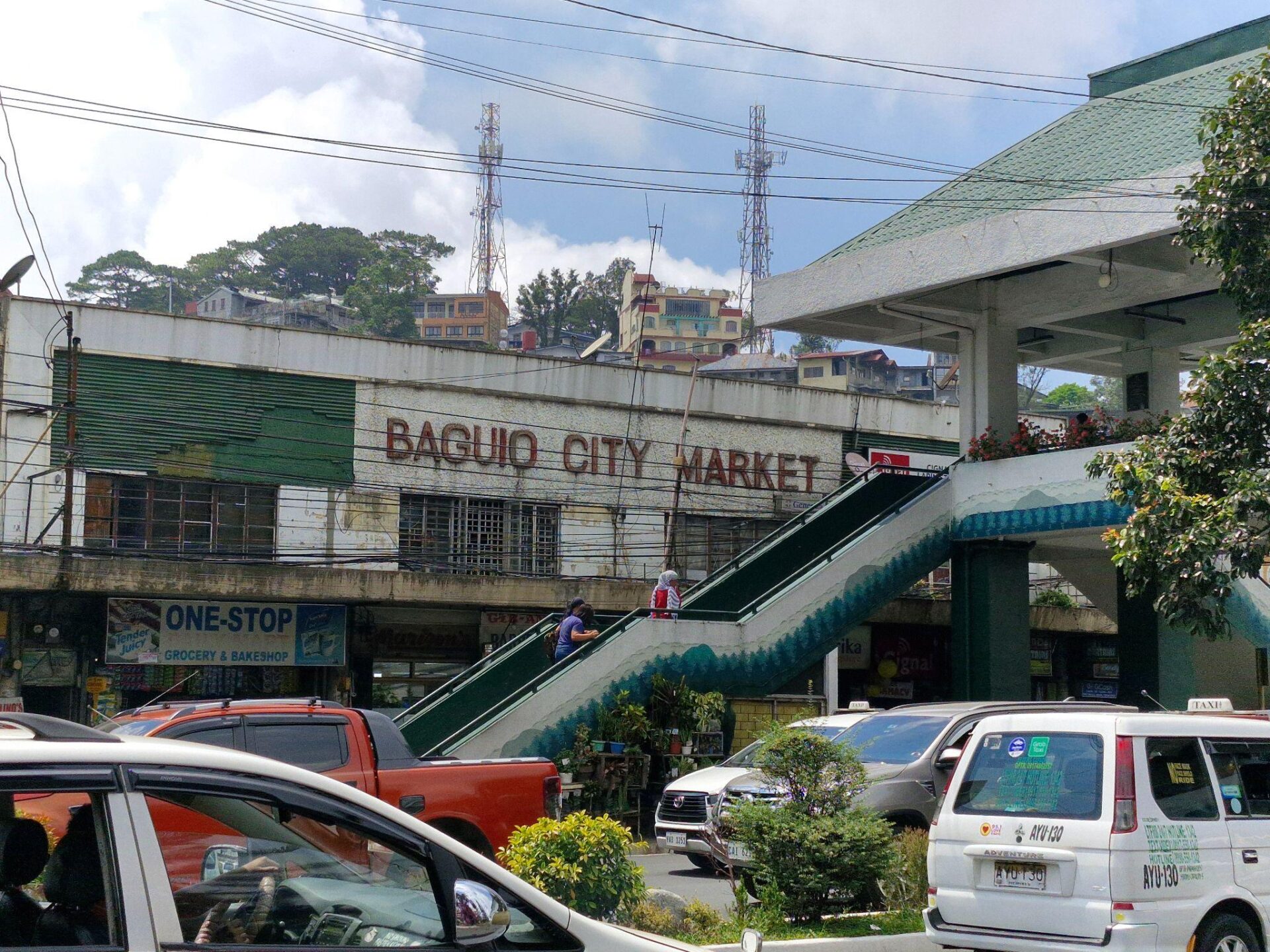
Public Market as election issue
On Feb. 11, 2020, Magalong announced that the market modernization project had attracted retail giants Robinsons Land Corporation (RLC) and SM Prime Holdings Incorporated (SMPHI) and that the city would pursue a public-private partnership (PPP) joint venture.
Both RLC and SMPHI presented unsolicited proposals to the local government, which immediately caught the attention of civil society groups, market vendors, and residents that opposed the “privatization” of the market. Netizens claimed Magalong had “sold Baguio to corporations” in his desire to develop the market into one of the best in Asia and not just in the country.
Still, the city council eventually agreed to pursue a lease agreement where the private sector would finance and construct a mall with an attached new market at no cost to the local government. While the mall would be operated by the private company, the market would be run by city hall which will own the facility after the lease period.
Magalong accepted SMPHI’s proposal of P5.4 billion for the project to be built within four and a half years with a 50-year leasehold. In approving the deal through Memorandum No. 433, the mayor cited the completeness of the SMPHI offer, saying Baguio would benefit from it since the plan included water treatment and solid waste management facilities.
Magalong also said he was able to reduce the area for the mall from the proposed 70% to 30%, and enlarge the space for the market from the original 30% to 70%. The initial offer was a seven-storey structure with the public market on the first two floors.
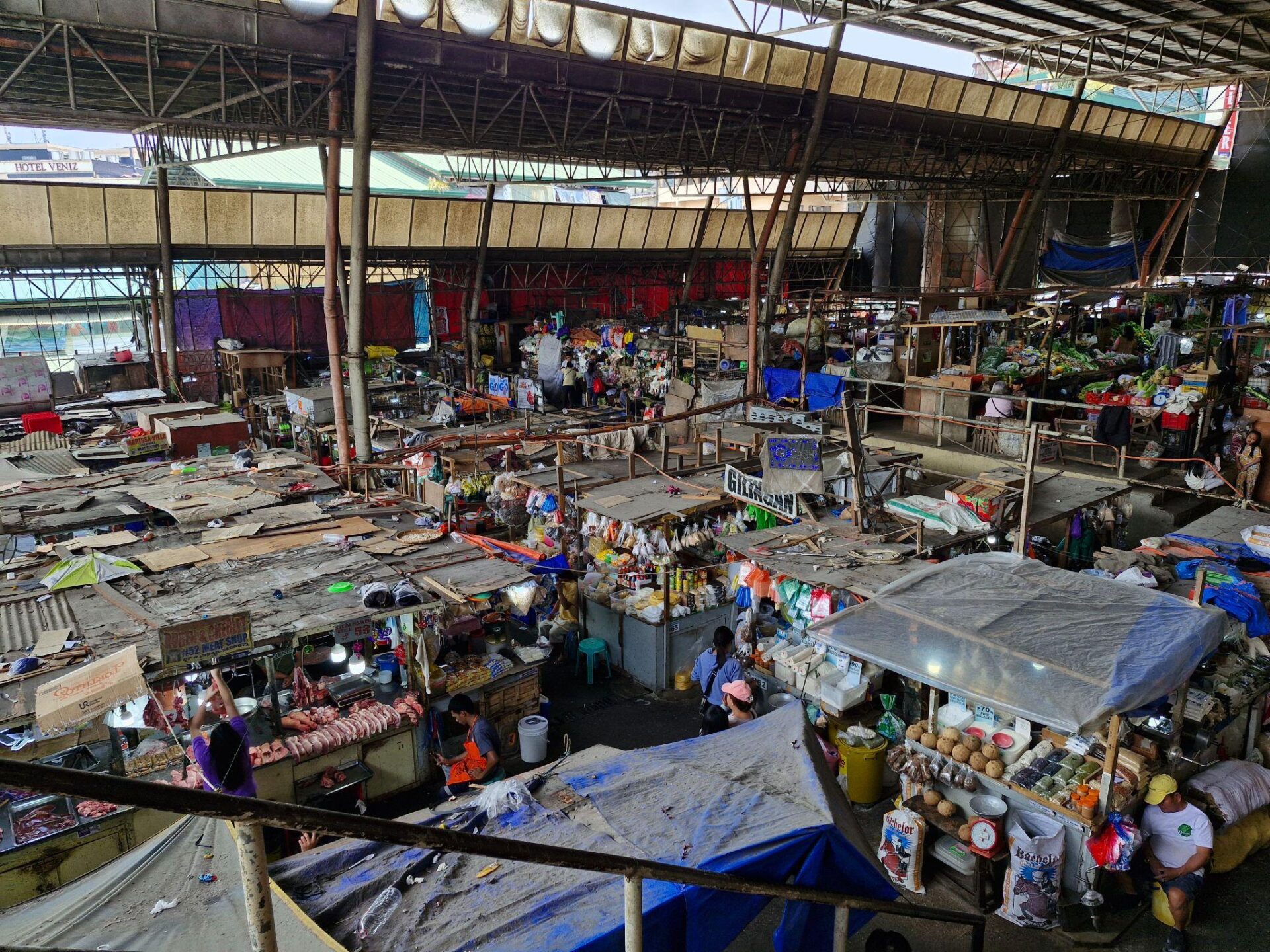
In the same memorandum, Magalong rejected RLC’s offer to build a market building and a mixed-use complex although this had been recommended by the selection committee of the Public Private Partnership for the People.
Magalong, who is seeking a third and final term, is pushing the PPP as the city lacks funding needed for the project based on a comparative analysis of the Baguio budget office. Based on that study on the various ways to finance the market modernization, the equity and debt financing modalities were not financially viable.
The mayor also justified his decision by insisting that modernizing the Baguio public market would end the corrupt practices prevalent there in keeping with his “good governance” crusade.
Recently, large-scale fraud was uncovered involving market collectors falsifying official receipts of arrival fees or “kwartais,” resulting in P50 million of lost revenues for the city. Under this arrangement, the entrance fee that vendors pay to bring in their goods for sale in the market are misdeclared and lowered on the receipts issued by the collectors and their allies who pocket the difference.
Running under the Good Governance Alliance, the 64-year-old mayor advocates for a city “that listens and governs honestly.” His platform pledges a sustainable economy for Baguio, jobs and opportunities for all, and fair land ownership.
Magalong’s rival for the city’s top post, incumbent Baguio Rep. Marquez Go, supports the rehabilitation of the market but not its development into a mall. The Team MakaBaguio’s standard-bearer wants “a modernized market for the people, where market vendors participate in every step of the process.”
Go’s team leader, Imelda Sedano said the congressman believes that the city itself should develop the popular Baguio market.
“We don’t need a mall in the market. What we need is to improve it. Siguro not to, ayun nga, sabi natin not to mall-ify. Kung hindi to make it become a community, a city, a Baguio no ‘yung kung ano ‘yung Baguio na alam natin na market, where people can go and buy. Hindi ‘yung mall,” she said, speaking for Go.
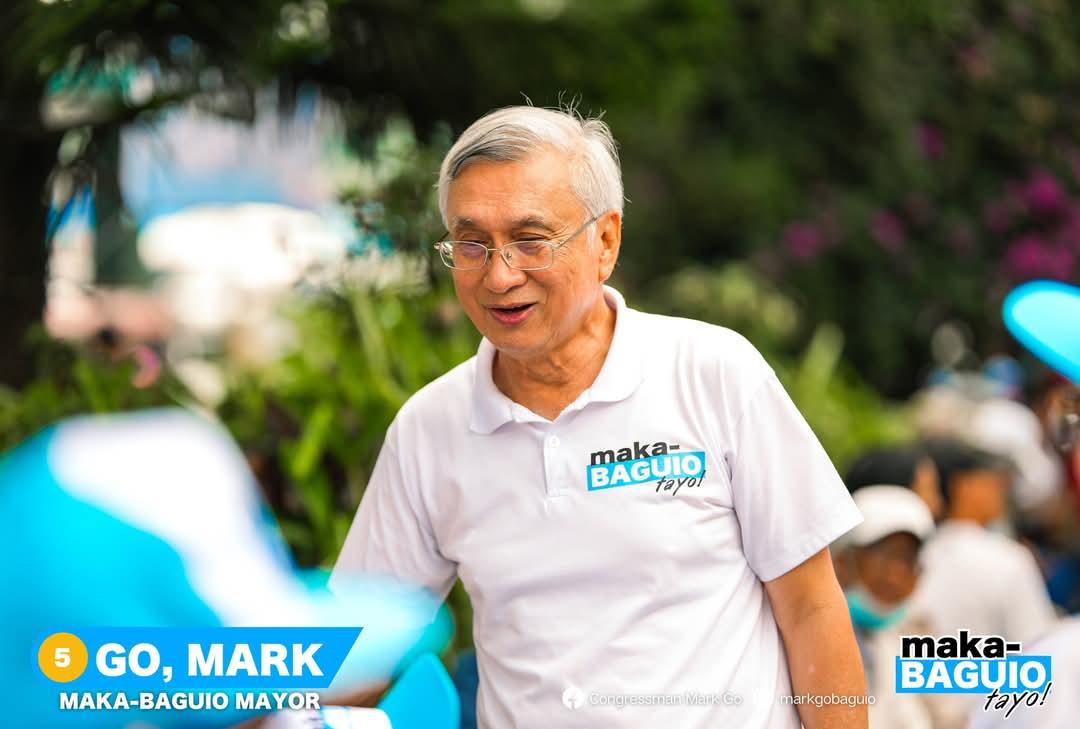
In his public statements, Go reiterates that he wants a market for the people, not for profit, and questions the city’s speedy issuance of building permits for commercial establishments and high-rise buildings.
Sedano insisted that the local government can afford to shoulder the cost of building a modern market as it has many sources of funds. She noted that Go knows how to handle the development of the market after having served three terms in Congress. She said the people of Baguio need someone who does what he says, pointing out that Go only wants to help the city, has worked hard over the years and gained the respect of the residents.
That the city government has the funds to redevelop the market is also the position of the vendors and stall owners in the market.
“So, sa amin, if papalarin si Cong. Mark, I think his stand with all of this is to make it a city that’s more for the people. Kaya nga ‘yung team is team Maka-Baguio tayo,” she stressed.
Incumbent councilor Benny Bomogao, another mayoralty hopeful, also opposes the partnership with a corporation. Claiming to be “laking palengke” where he was a “comboy” (vegetable transporter) in the black market and delivered newspapers to some stall owners. Bomogao said the market should be developed by the government with the participation of the vendors. It should be “pro-Baguio at pro-taga-Baguio,” he said.
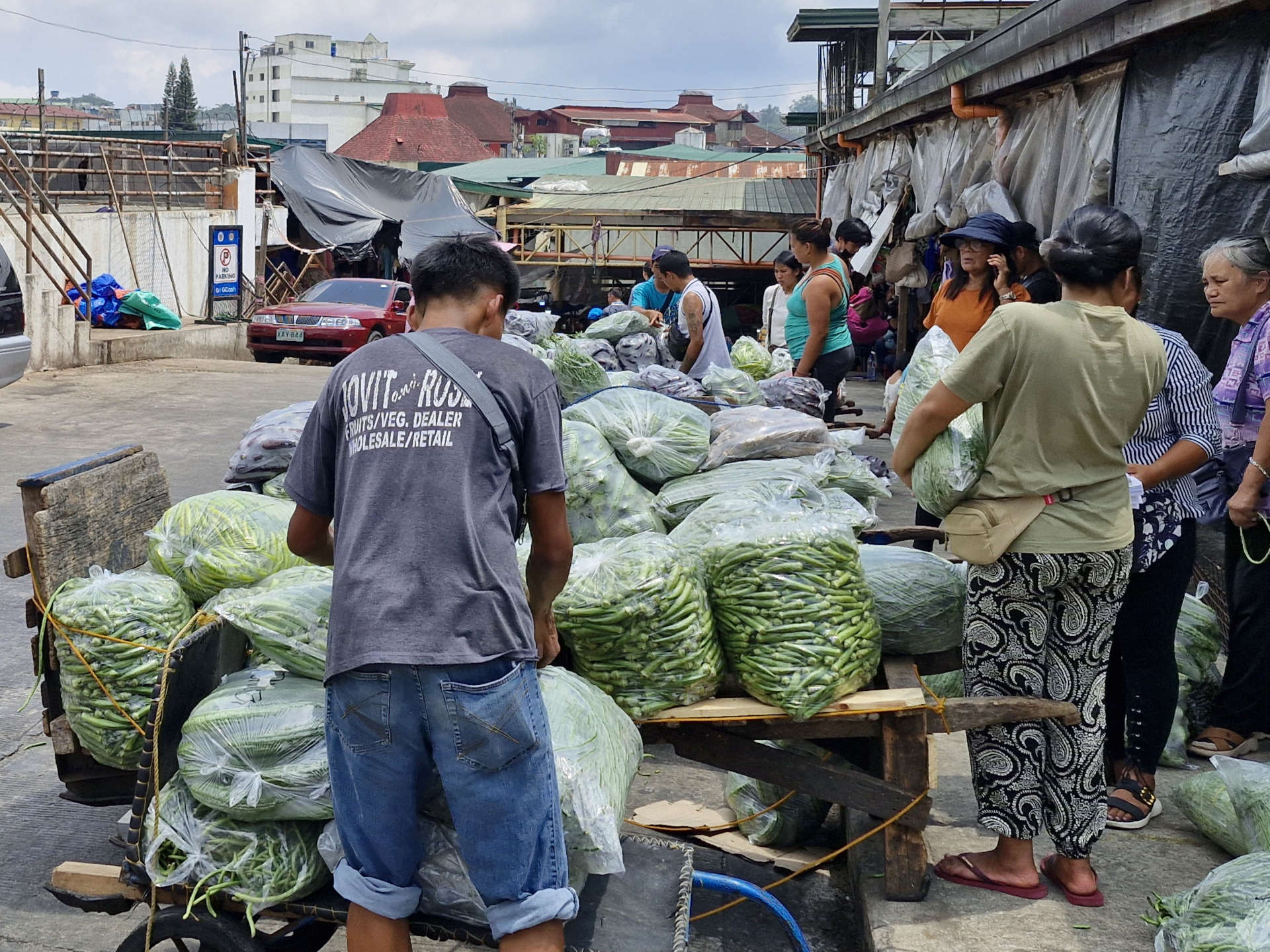
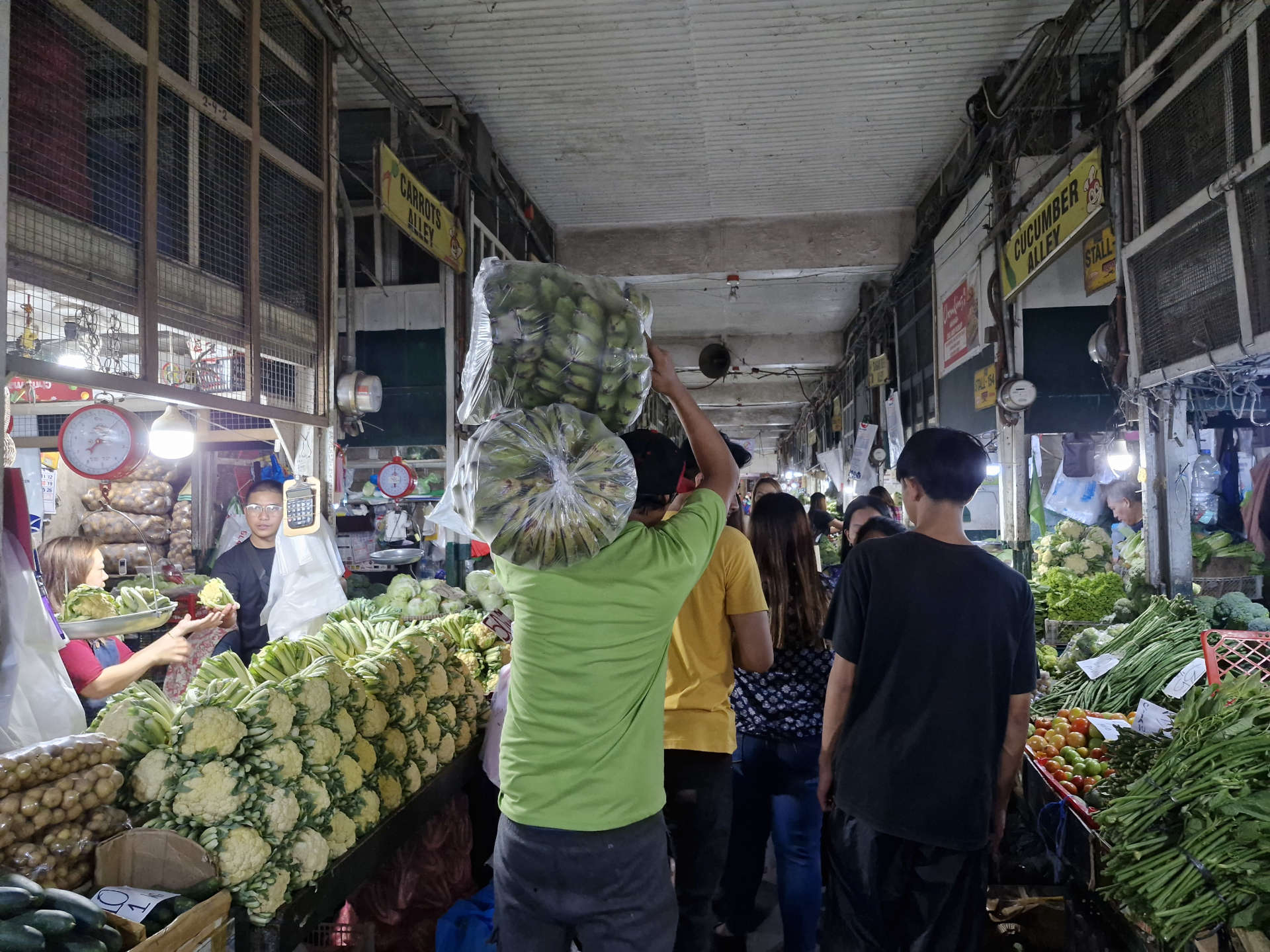
Vegetable transporters called ‘comboys’ are fixtures in the market.
Bomogao believes that once the market becomes “privatized,” the people could lose their historical and cultural connection to the place. “Hindi ito simpleng gusali, ito ay puso ng lungsod,” he said. He affirmed that the market should be modernized but it has to be in the hands of the community.
As the race among the three frontrunners in the six-way race for city hall heats up, the controversy over the future of the Baguio market has gained significant public interest and taken center stage.
In his April 10 public market caucus, Magalong claimed corrupt officials hired people to portray him as corrupt, citing a taxi scheme that began last year. He said corrupt officials pay these taxi drivers daily to start a conversation with their passengers and tell them that Magalong owns big businesses in the city such as the Parkway Residences and Medical Center and GoodTaste Restaurant.
“Never, never in the city of Baguio na nangyari na ganyan kadumi ang election po natin na gagamit ng kasinungalingan para manira,” the mayor lamented, pointing at attempts to destroy Baguio, which is a “character city.” He was referring to the 2023 Character City Ordinance that aims to instill positive values to the community and encourage public officials to lead through a character-based approach that highlights truth as a human value.
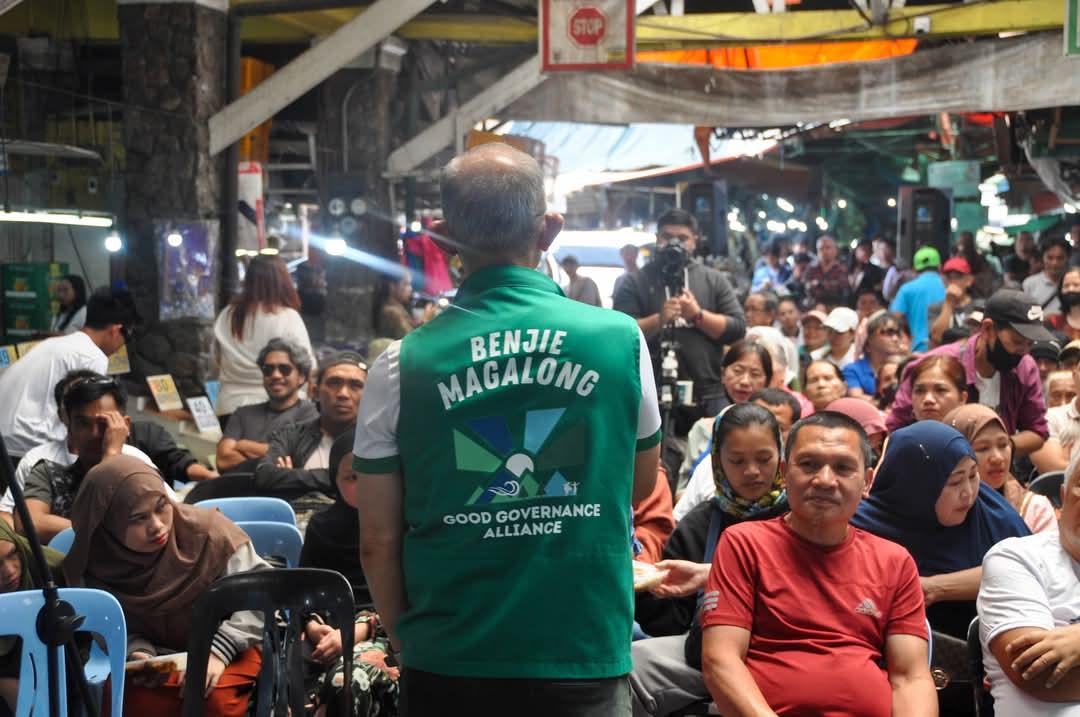
Magalong’s party has been utilizing social media for their campaign and consistently conducting caucuses in different barangays. Supporters also have their own Facebook group “Good Governance: Get Involved! (Baguio).”
Go has likewise been engaging with barangays to present his platform and seek support. On social media, he denounced gambling allegations against him and claimed that his family’s properties have been the result of “40 years of hard work, blood, and sweat.”
Bomogao, on the other hand, is back on the campaign trail and has resumed his barangay visits after pausing his campaign with the death of his father. Running under Timpuyog Ti Baguio, he also has a strong online presence, utilizing his Facebook page to promote a leadership guided by his mantra: God-fearing Governance, Accountability, Transparency, Trustworthiness, Sincerity and Service Above Self.
The Iconic Baguio public market
Located at the lower end of Session Road along Magsaysay Avenue, the Baguio public market has been a cultural symbol of the city for decades. Originally built in 1917, the “old stone market” is where Benguet and Mountain Province natives bring their crops and goods to trade. It survived bombings in World War II, but several fires have gradually diminished the old market people knew.
Archivist Erlyn Ruth Alcantara said the public market today, with a total land area of about 3.25 hectares, is made of “six postwar structures finished with the same Baguio stone used in the earlier market buildings.”
It houses about 4,000 vendors, several of whom are believed to be involved in illicit activities such as subleasing, according to Public Order and Safety Division Chief Daryll Longid.
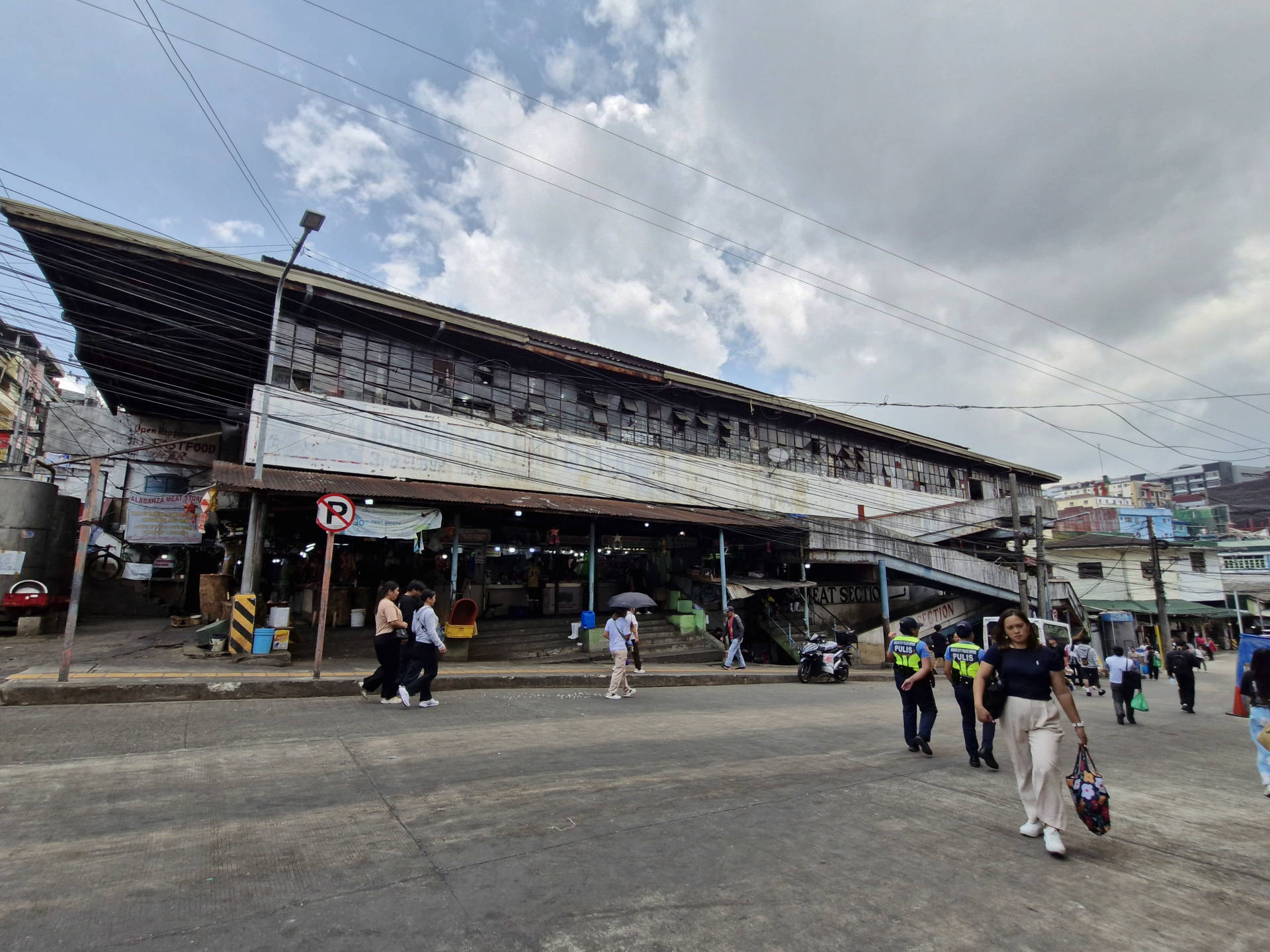
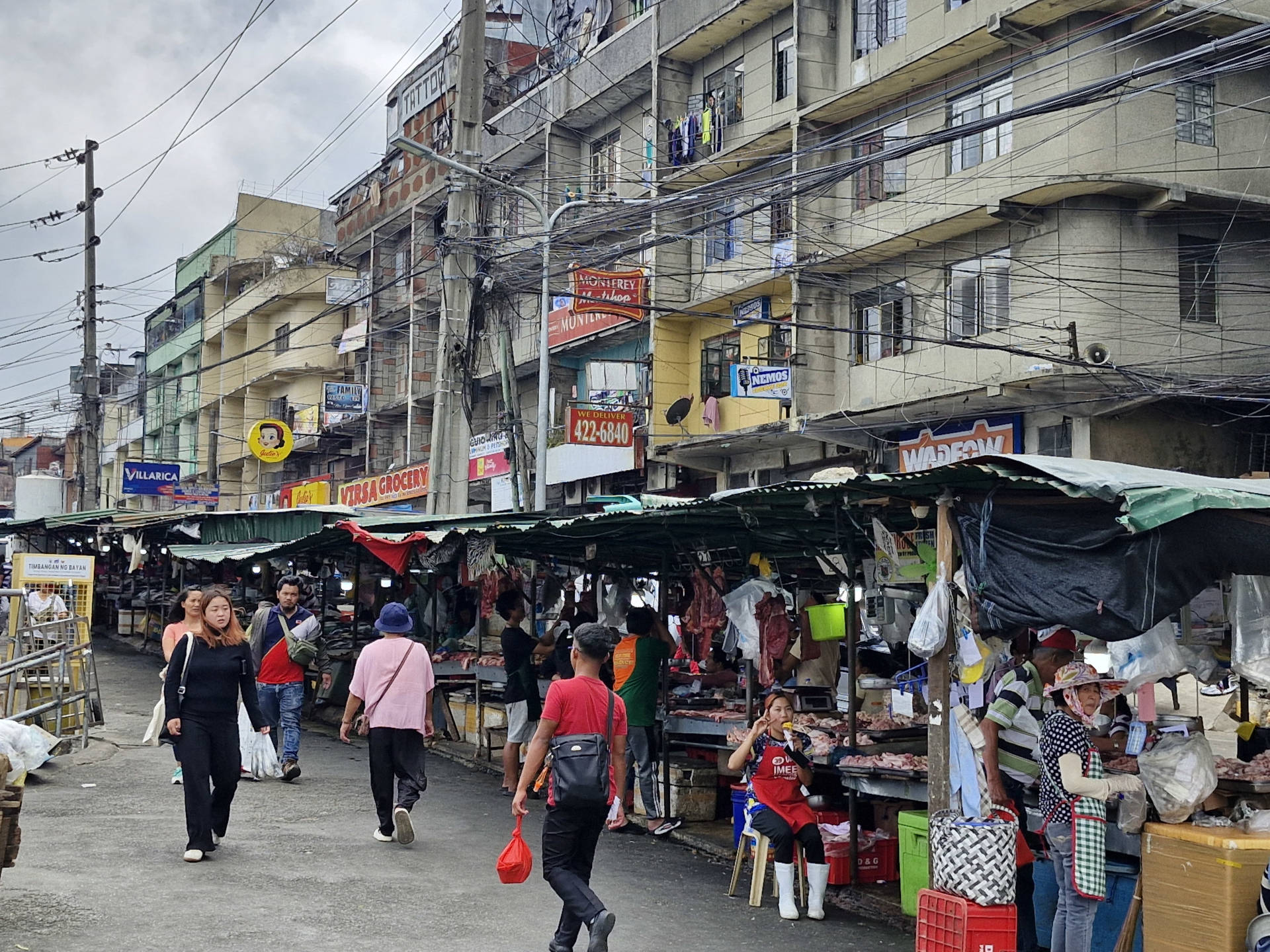
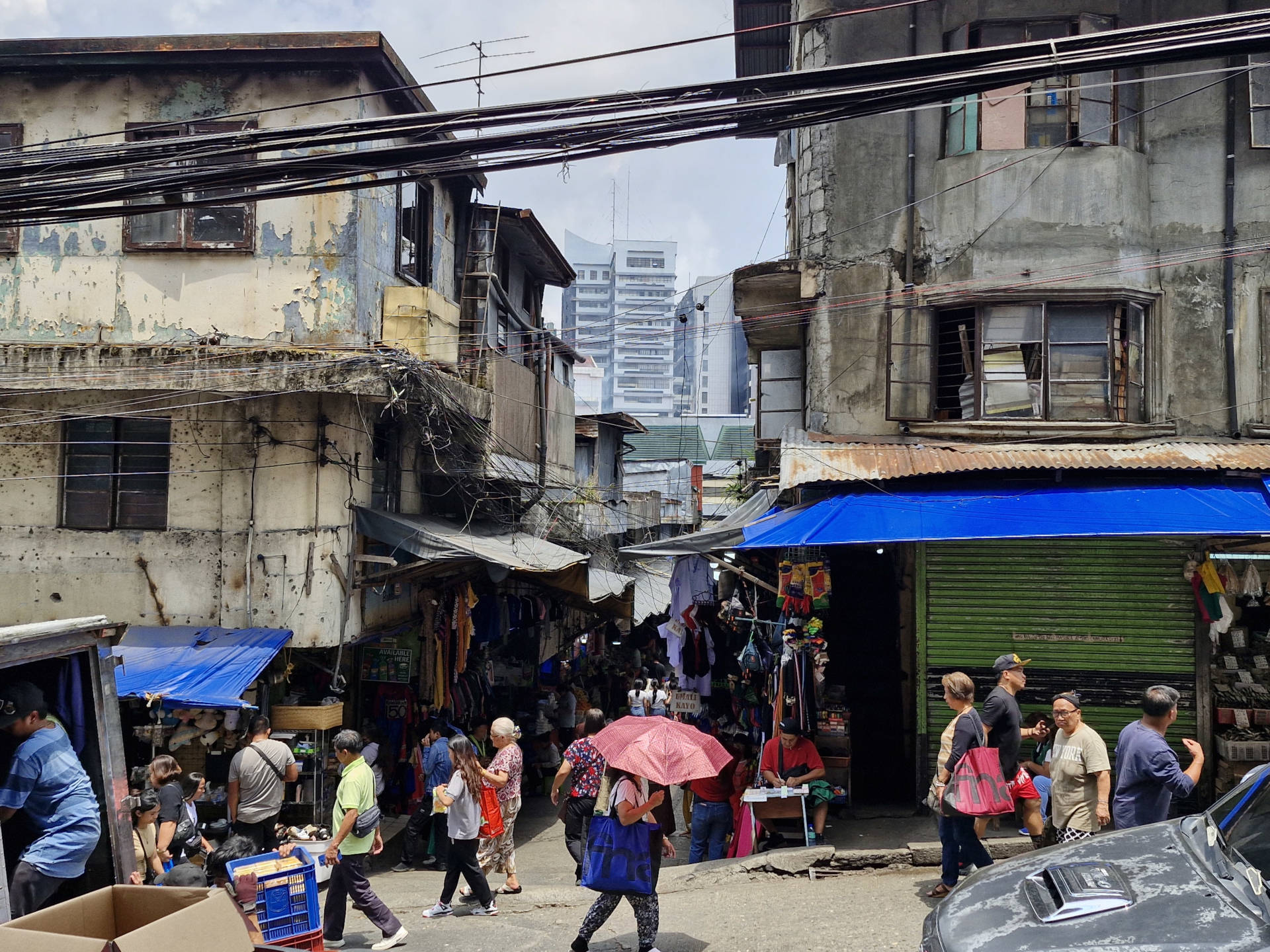
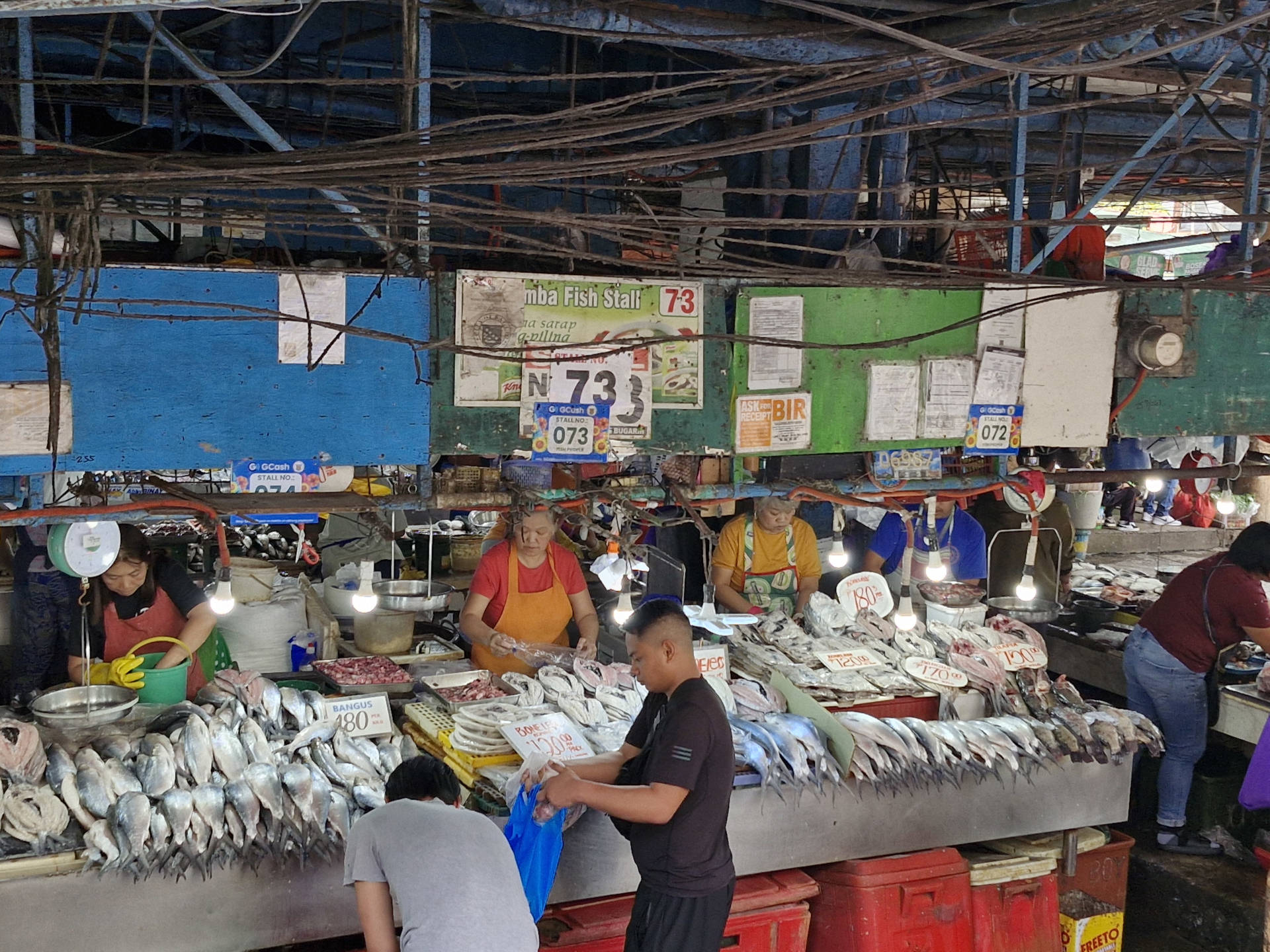
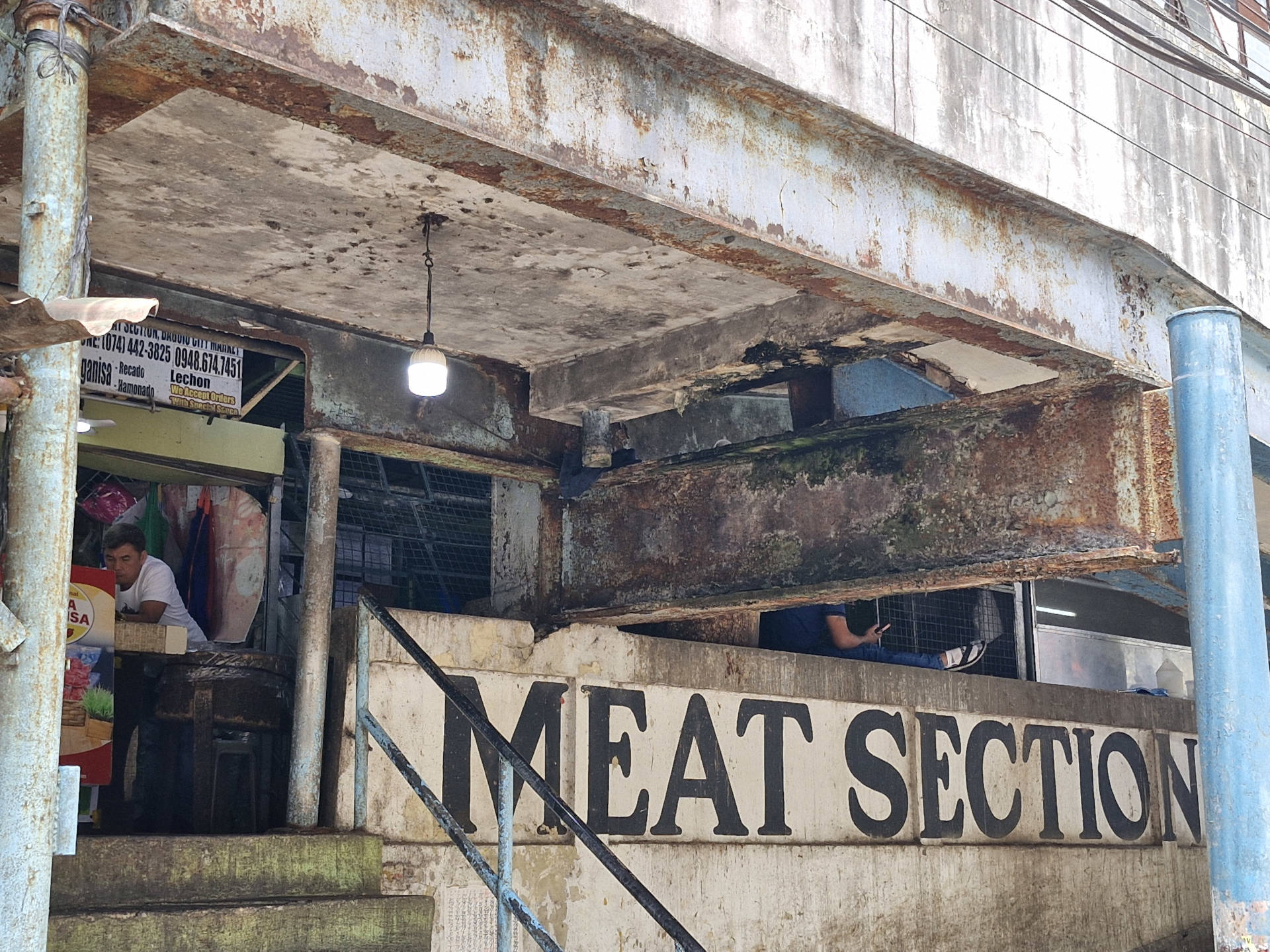
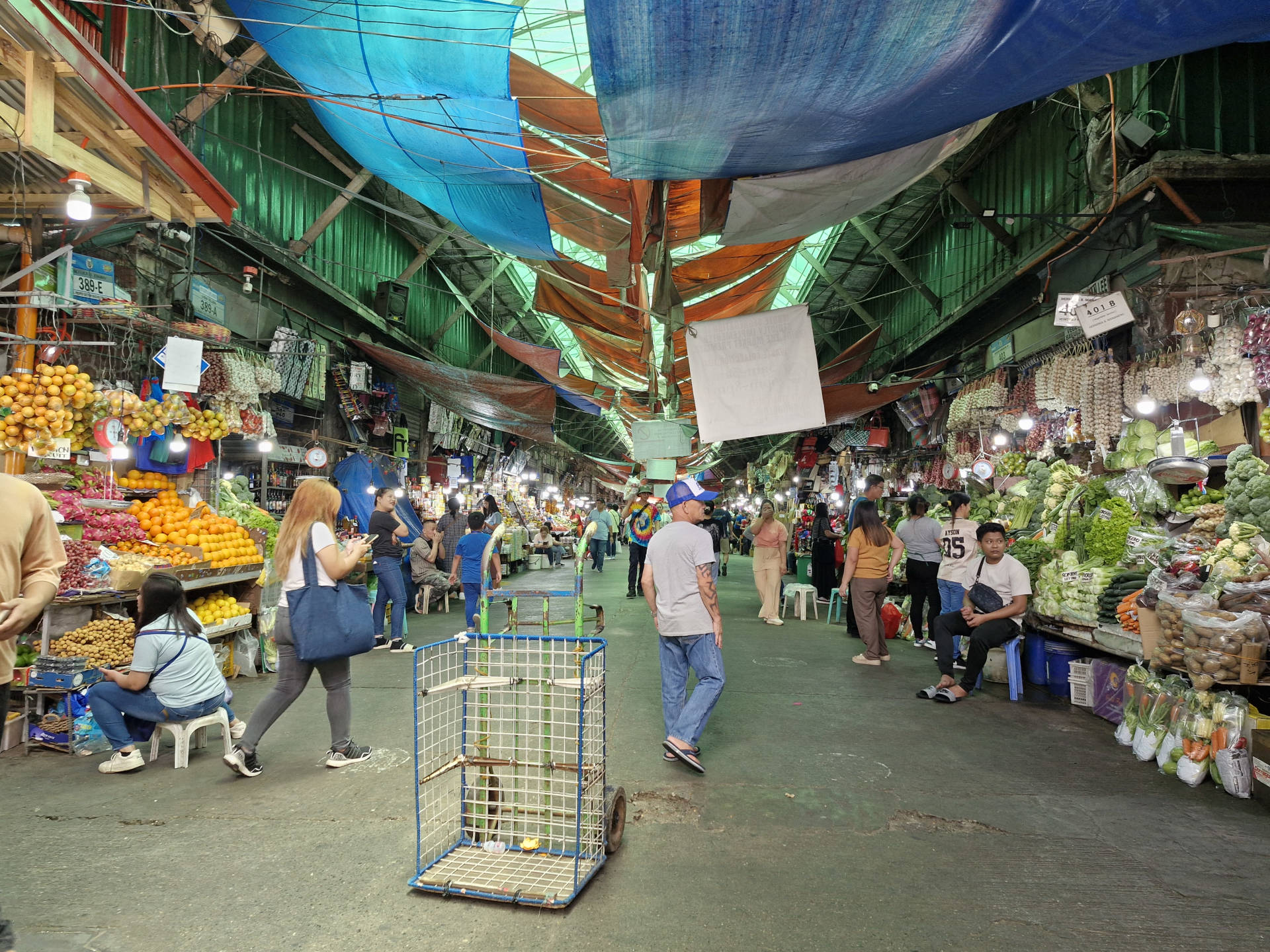
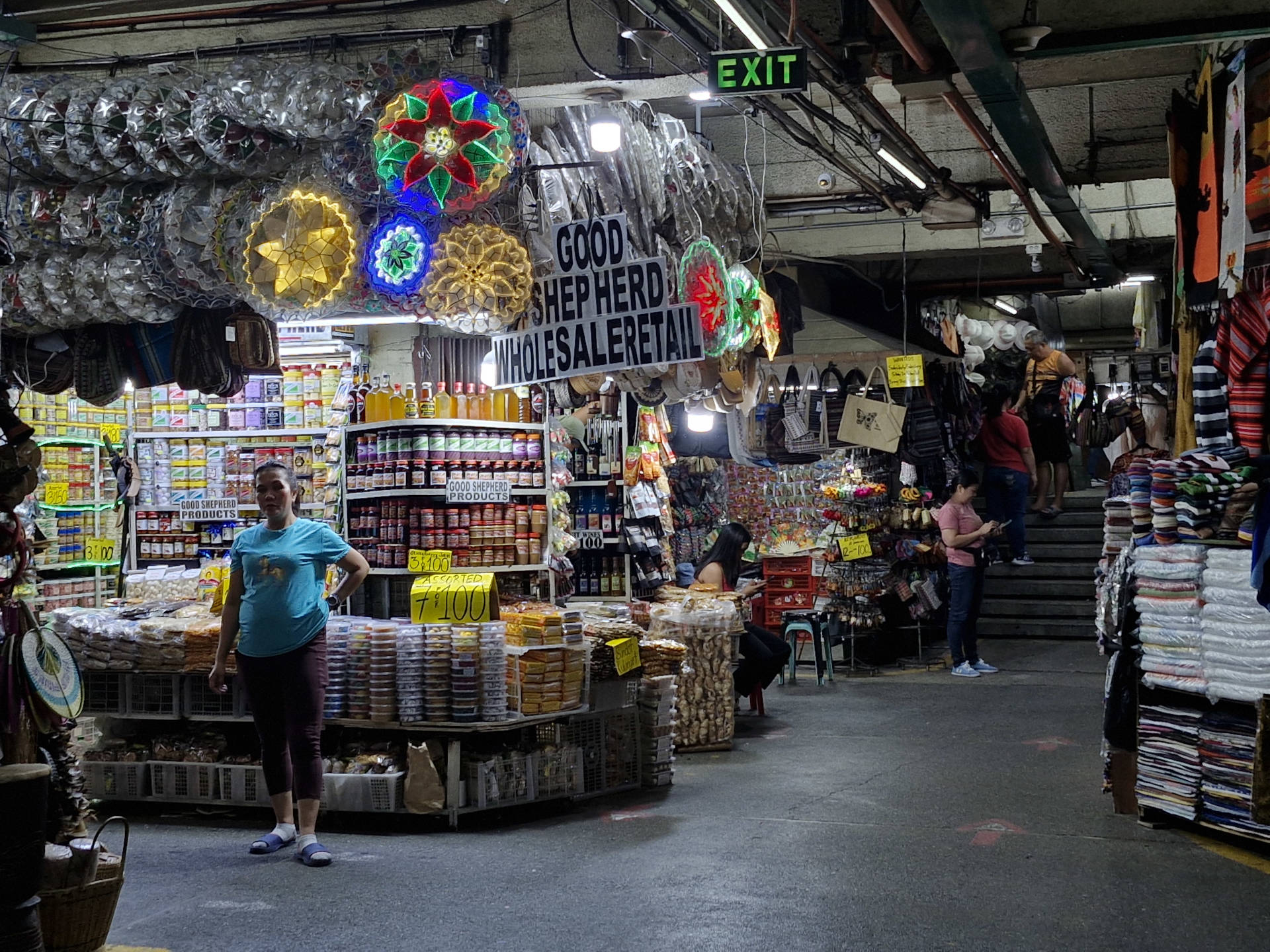
“Based on our investigation, 50% ng stalls dito sa public market ay ganoon ‘yung situation. Problematic,” he admitted, adding that only legitimate stall owners and vendors will be transferred to the relocation site once construction of the new market begins.
With its cool weather and beautiful scenery, Baguio continues to be a tourist attraction, bringing in 1.56 million outsiders last year. Its iconic market is a regular haunt for pasalubong, from assorted 6-for-100 snacks, plants and flowers to brooms made of tiger grass. It continues to thrive as an economic driver for the city, where strawberries, vegetables, local crafts, and souvenirs can be purchased.
Baguio plays a key role in the economic life of the Cordilleras, contributing 46.8% of the region’s gross domestic product of P361.08 billion in 2023.
Project Status
At the April 10 caucus, Magalong said SMPHI’s market proposal would be sent to the City Development Council (CDC) for approval and then to the city council, which will again involve several public consultations.
SMPHI had already secured a certificate of successful negotiation in September 2024 as required by the new PPP law enacted in 2023 for local-level unsolicited proposals with an Original Proponent Status. After passing the CDC and the city council, the proposal would be opened for comparative challenge where other companies will have the chance to match or beat SMPHI’s offer.
The Baguio Market Vendors Association has been raising P4 billion to counter the SMPHI deal in the competitive challenge. It had submitted a proposal in 2020 but failed to complete the necessary documents to proceed.
The Debate
Magalong has reiterated multiple times that the modernized market will be managed and run by the city government. He said he has been conducting public consultations to educate the public given the fabrications and lies surrounding the project.
“Kasinungalingan ‘yung privatization, Kasinungalingan ‘yun. You have to check your facts. There’s no truth na ‘yung market natin will be managed by a private group. The market will be managed and operated by the local government of Baguio. Klarong-klaro ‘yan. Walang mababago diyan,” the mayor insisted.
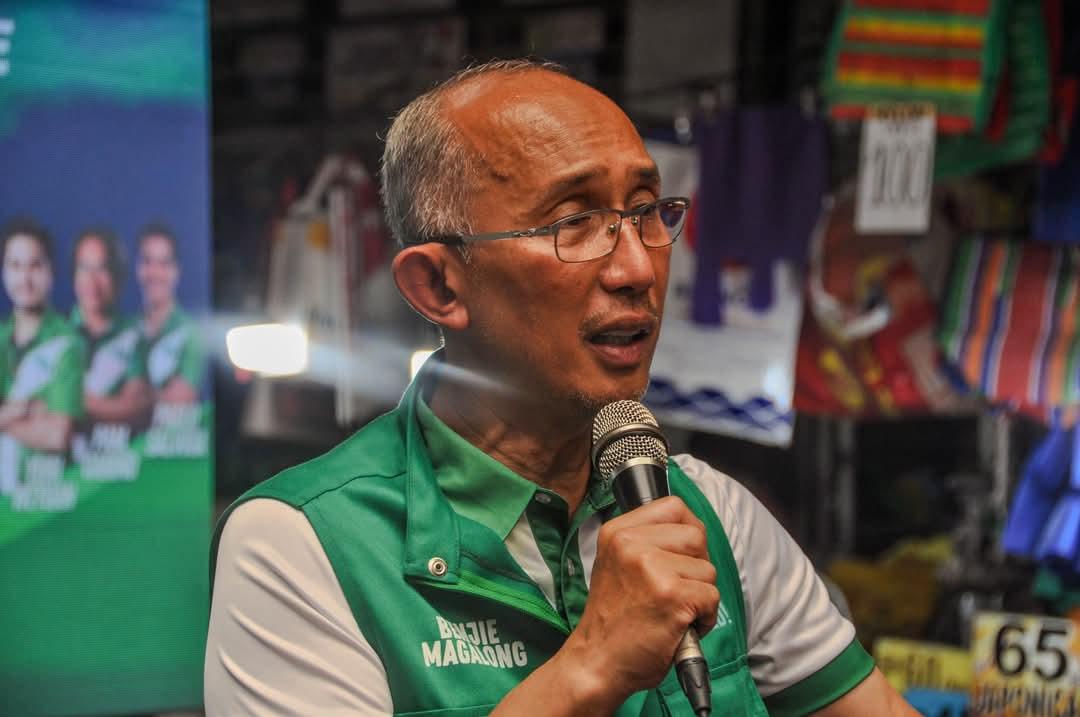
Ruel Caricativo, a political science professor at the University of the Philippines Baguio, described the consultations as tokenistic because decisions were already made behind the scenes.
“Ang consultations na ito, para bang FYI na lang,” he claimed.
Caricativo believes the market “takeover by private interests” is outright privatization and not modernization.
“They usually justify their policies as “rational” and “efficient” but only from the perspective of market fundamentalists who intend to empower the private sector in addressing public concerns. Anong mangyayari kapag ganito? You have policymakers favoring private interests na ang talagang layon ay to extract more private profit from decidedly public goods, services, and spaces,” he said.
Privatization is not the only answer to improving public services, the professor added. There are other possible arrangements, he pointed out, and several sectors and groups in the city have committed their support once a consensus is reached on the best way to do this.
Magalong believes that Baguio’s modern market will be “one of the most beautiful” markets in Asia, noting that its design is a take-off from architecture in The Netherlands, Singapore, and Barcelona. Sanitation will be improved and the future parking building that can accommodate more than a thousand vehicles will attract more customers.
“Kita mo ‘yung mga benefit niya. Benefit sa environment natin, good for our economy, and at the same time, good governance,” he said.
But vendors and other market stakeholders said they were not properly consulted on the project.
Alicia, who has been selling flowers and plants for 20 years, and fruit vendor Sharmaine, expressed how voiceless they have been in trying to reach out to authorities regarding their concerns. She is firm in her stand that the city should use its own funds.
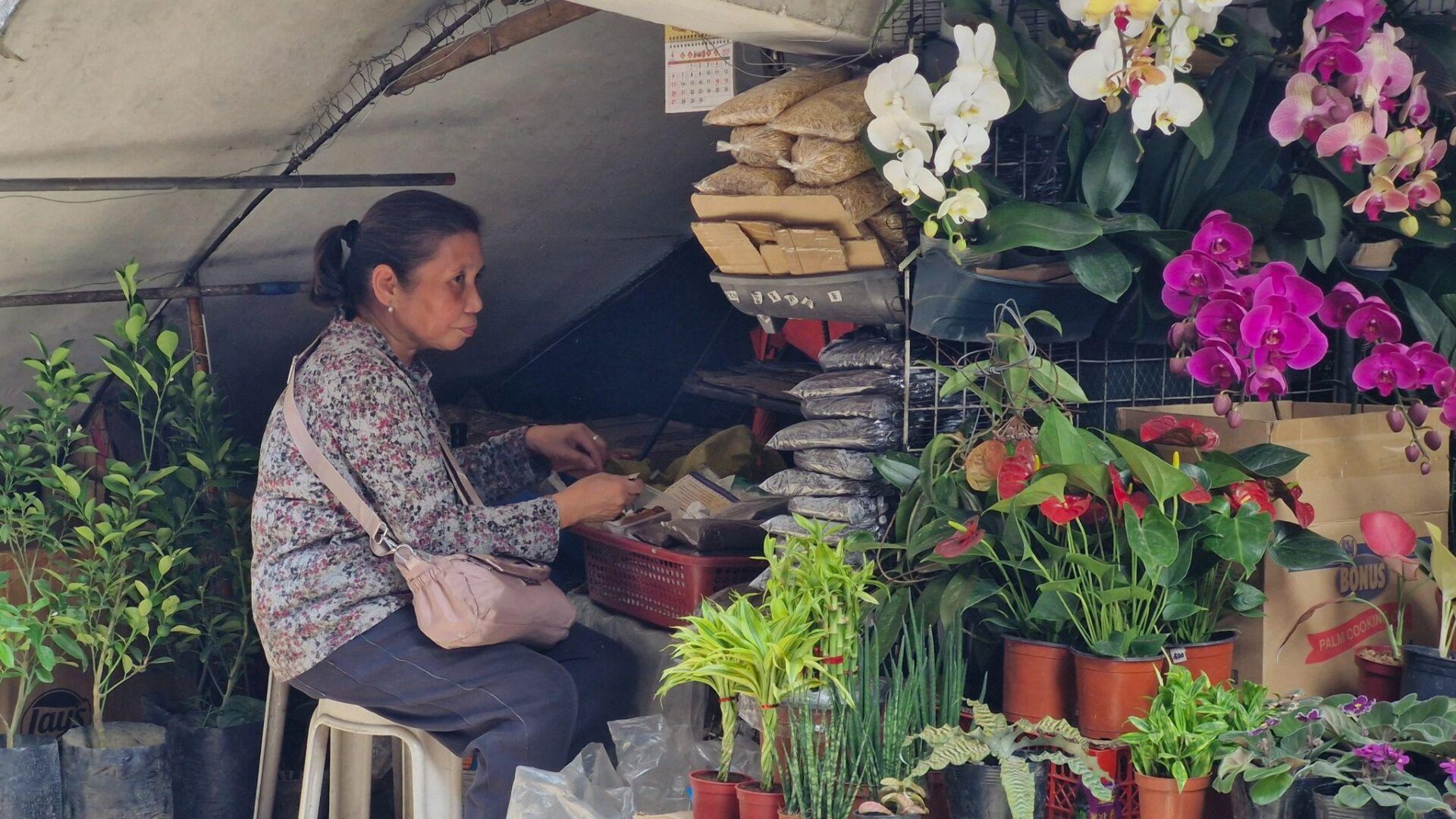
“‘Yun ang nakikita ko ah, kasi nakikimeeting naman kami, pero parang wala kaming boses. Syempre nakakaiyak naman,” Alicia claimed. “‘Yung city government mismo ang magpapagawa kasi kaya naman ng city, eh. Sa amin lang, bilangin mo, ilan kami dito oh? Saan napupunta ‘yung mga perang ina-ano ng mga businesswoman, businessman ‘di ba? Saan ba na-aallocate ‘yun?”
On the other hand, Sharmaine, who has been doing business in the market for almost six years, approves of the project but worries about their relocation site and the continuation of her income while the construction is in progress.
“Basta ‘yung assurance sana na kung sakaling aayusin yan, syempre kailangan umalis kami eh. ‘Yung assurance sana na kami pa din ‘yung magstay. At saka ‘yung isa pa doon, kung saan kami ililipat for the meantime kasi as in ang daming mawawalan ng trabaho talaga,” she shared.
Legacy or lost cause?
In a recent candidates’ forum, Magalong declared that he would be the first and last in his family to run for a political position. If the market modernization succeeds, it will go down in Baguio’s history as the achievement of his administration, the one that brought to fruition a project envisioned from the 1990s.
“He knows that his time as a mayor has a limit. While he’s here, ang gusto niyang gawin is makaiwan siya ng magandang legacy for the people. Not for himself, para sa mga tao na magmamana dito sa ating siyudad,” Longid said referring to the mayor.
Caricativo said Baguio’s political climate is now characterized by patronage and dynastic ambitions driven by competition among political elites. The election results “will be a referendum kumbaga whether the people of Baguio assent to dynastic leadership or not,” he said, referring to the Go couple. The congressman’s wife, Soledad, is seeking to take over his seat.
Magalong, on the other hand, strictly abides by the local government code but the professor said his style of governance is “managerial and technocratic.”
“Too much reliance on so-called ‘experts,’ whose views about local issues tend to be hit-or-miss dahil hindi lapat sa lupa ang mga ito, kumbaga,” he said of Magalong’s administration.
On April 16, Magalong instructed the Baguio Assessor’s Office to open to the public the records of his properties and business, in an act of transparency and good governance to refute allegations that he owns major businesses in the urban center.
Will Magalong get his legacy or will his pet project be flushed down the drain – along with his name? At this juncture, the answer hangs in the cool Baguio air as voters troop to the polls on May 12 in hopes of a brighter future.
(Photos: Jt Soriano)
